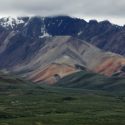Alaska became a state in 1959, along with Hawaii. The experience of Alaska before and after statehood has some lessons for us when we think about how statehood might affect Puerto Rico.
Alaska’s state history course explains that the people of Alaska, following WWII, began to resent their second-class citizenship as a territory. They had a local government, but — just like Puerto Rico — they were under the plenary power of the Congress, and they were tired of having decisions made for them by people in Washington who were not familiar with the local conditions. They wanted to have more control over their government by having elected representative who could vote in Congress.
But there was not universal agreement. The history course sums it up:
Supporters said statehood was a matter of justice for Americans who lived in Alaska and were denied their rights, and were ruled by an absentee government and absentee industries. Opponents said Alaska could not afford statehood and should remain a territory until economic conditions changed. The pro-statehood forces responded that conditions would never change until Alaska gained control over its own destiny, which could only happen with admission to the union.
Alaska had some special tax breaks as a territory, but these breaks benefited the owners of the corporations that took advantage of them, not the people of Alaska. The people of Alaska were almost entirely dependent on the U.S. government. The people benefiting from the mining and fishing industries did not want statehood, because they worried that taxes would limit their wealth.
Economic benefits
In 1958, the median household income in Alaska was $2,600. In the U.S. as a whole, it was $5,100.
Now? The median household income in the United States as a whole is $65,712, according to the most recent available Census figures. The median income in Alaska is $77,640. The median income in Puerto Rico is $20,539.
Alaska has had good times and bad since it became a state. The largest earthquake in North American took place there, along with volcanic eruptions and both human-made and natural disasters. The position of the native people of Alaska has been difficult, both before and after statehood, and the people have not always agreed on every political issue. But Alaska has maintained its special character while benefiting from statehood.








One response
[…] Not only do we have the historical evidence showing that territories that become States become more prosperous, but we also know that States get more support from the federal government than territories do. […]